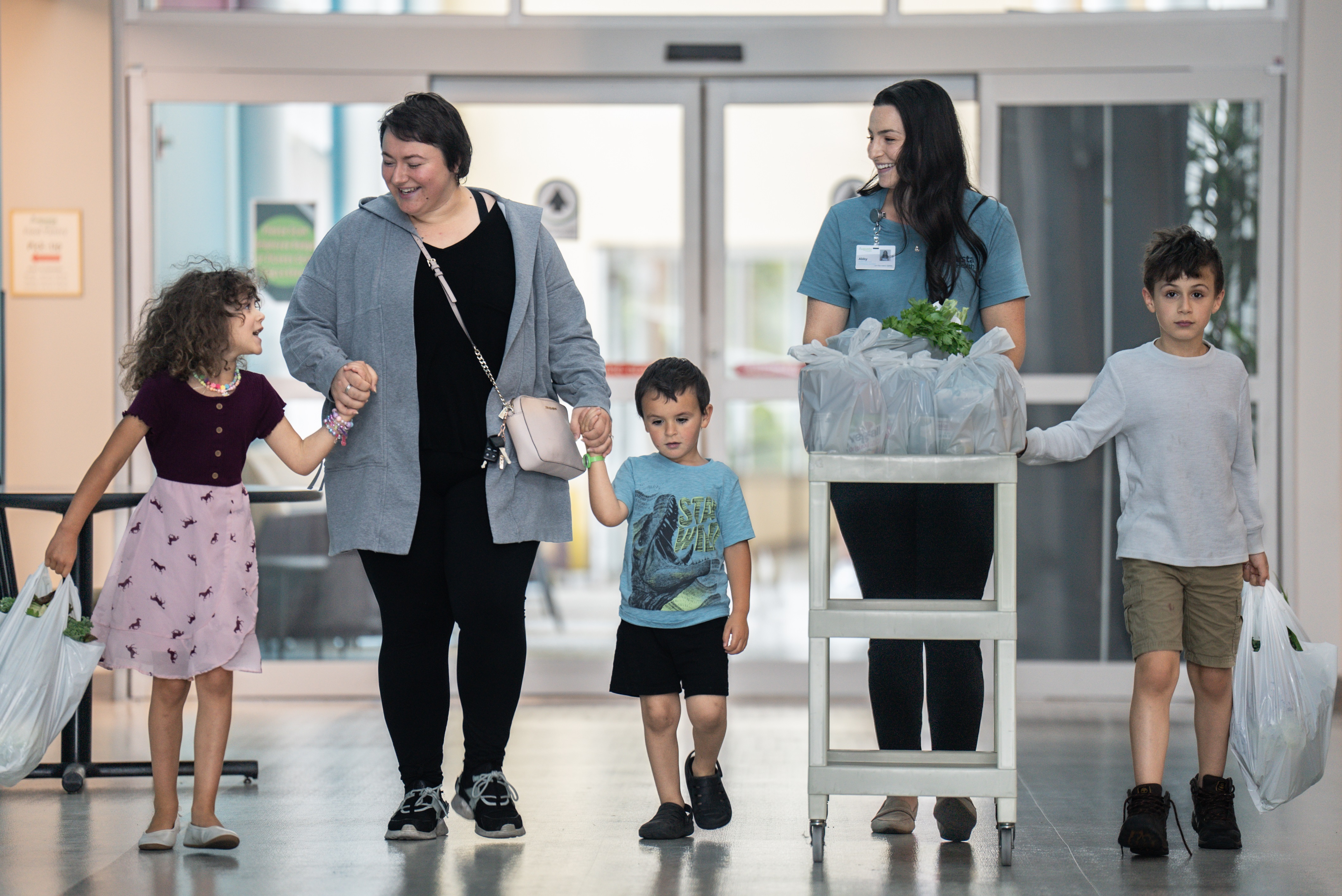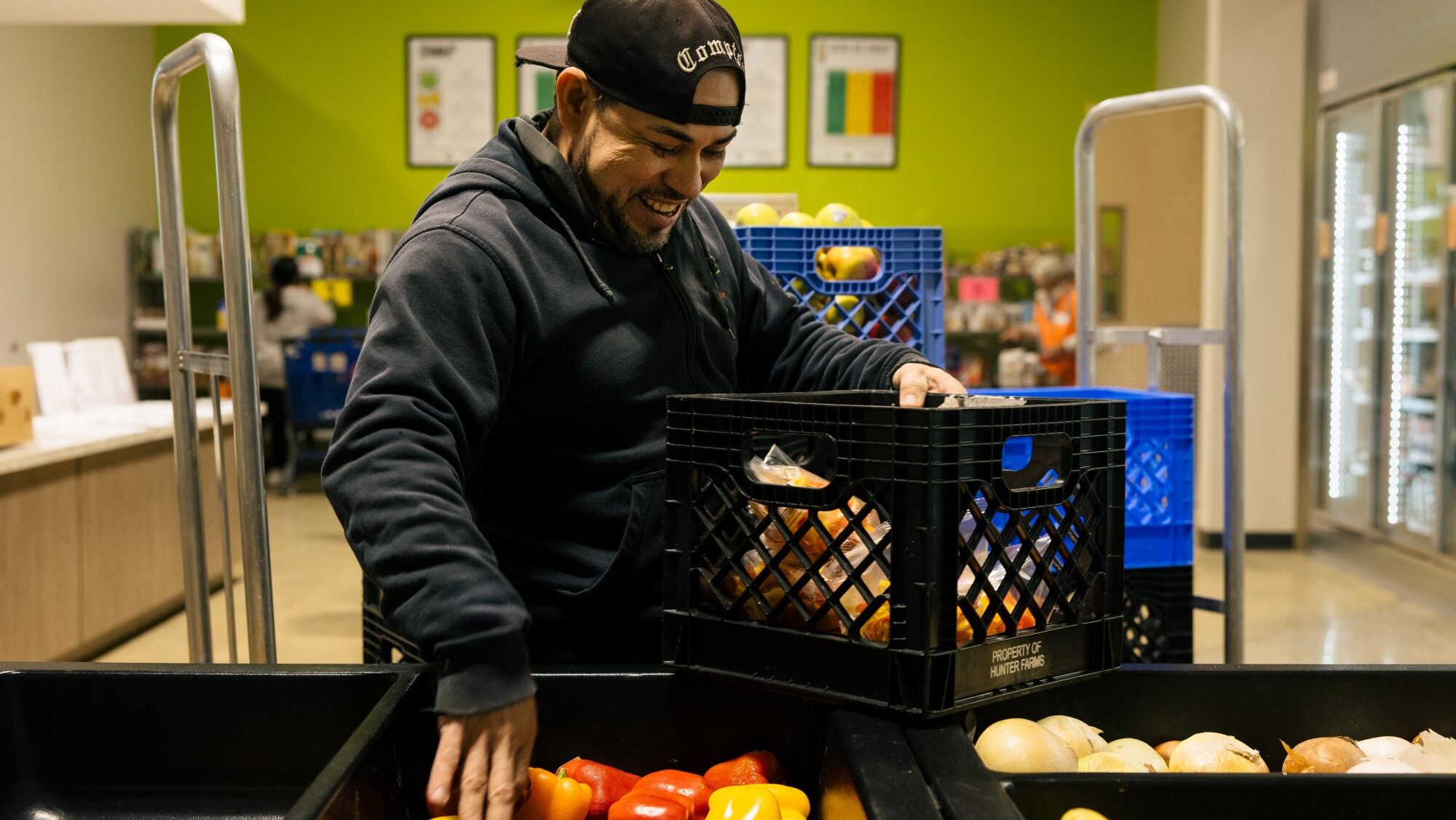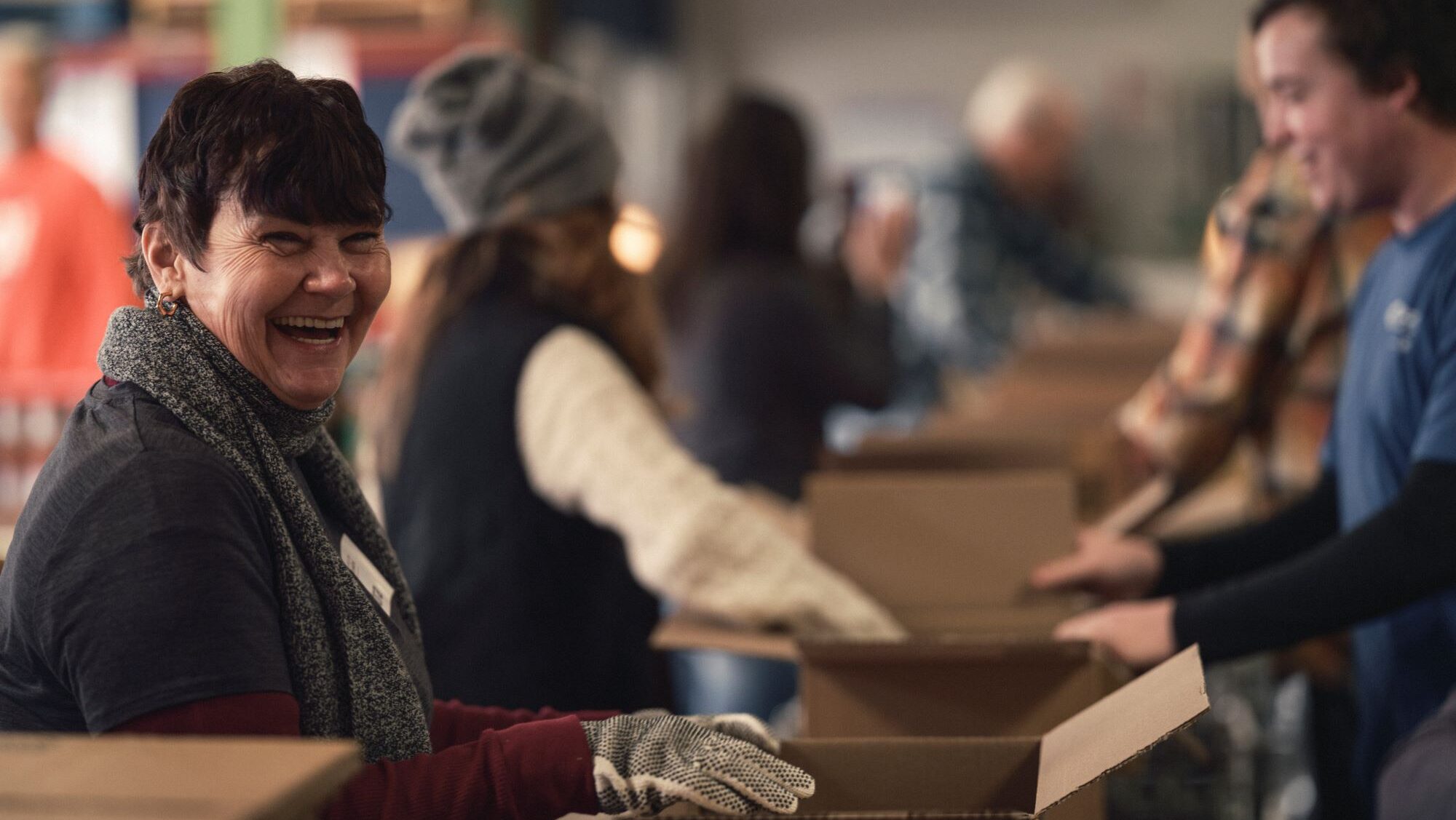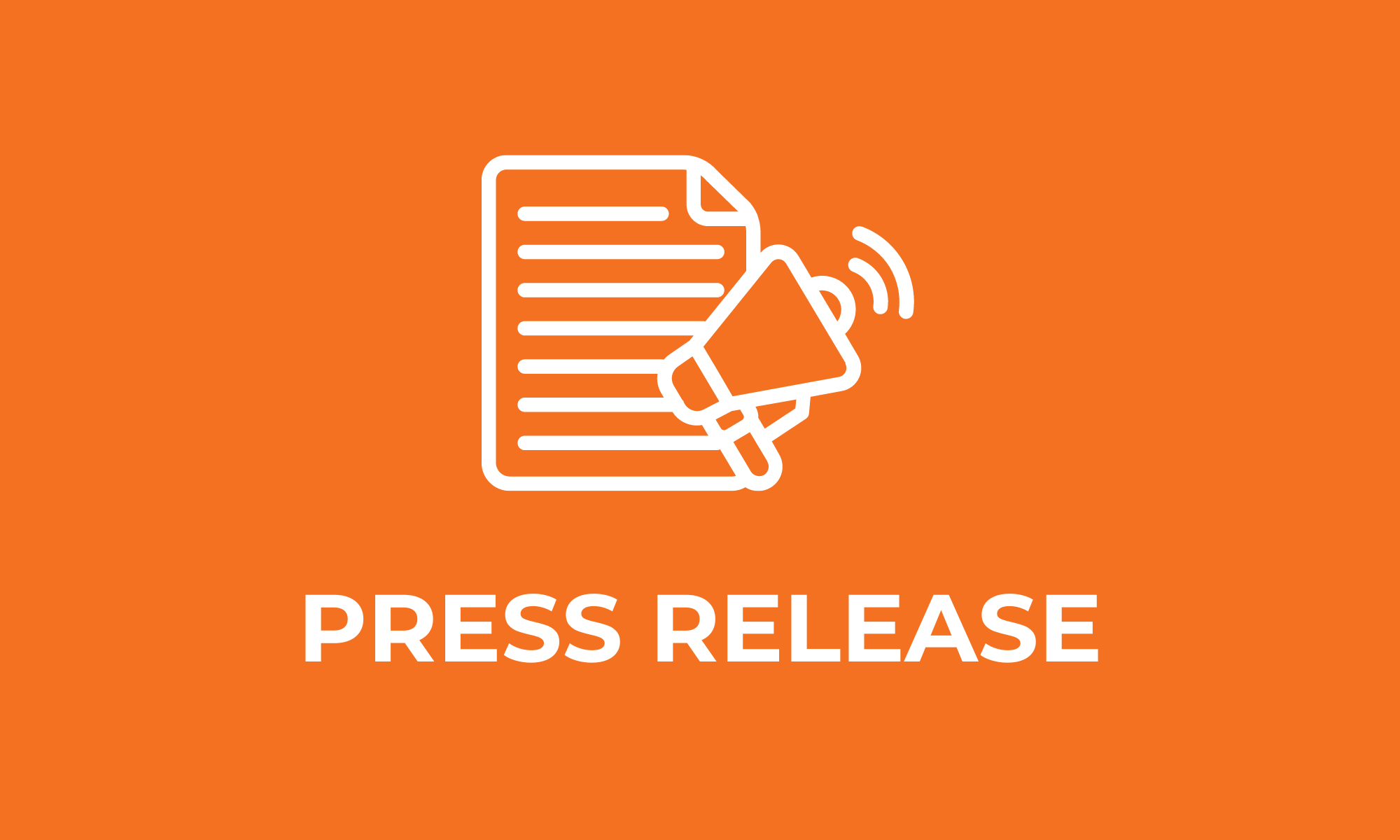The following summarizes material presented in a virtual CEO Forum on September 25, 2024. You can watch the recording here.
Recently, I had the pleasure of meeting with many of the Food Bank’s partners, donors, and supporters in a virtual forum. It’s always inspiring to connect with individuals who share our commitment to providing nourishing food and supporting good health for all. I was grateful that Dr. Clint Merritt joined me in the webinar. Clint serves as Chief Physician Executive and Senior Vice President at Augusta Health, and as a member of the Food Bank’s Board of Directors.
Food is medicine
There’s a crucial shift underway in how food banks think about food insecurity. More and more, we are focused on improving nutrition security: the recognition that nutritious food is essential for helping our guests be as healthy as they can be.
Food is medicine. This simple truth has profound implications for how we operate as a food bank. Before I explain further, it’s important to set the stage and show how we’ve arrived at this point.
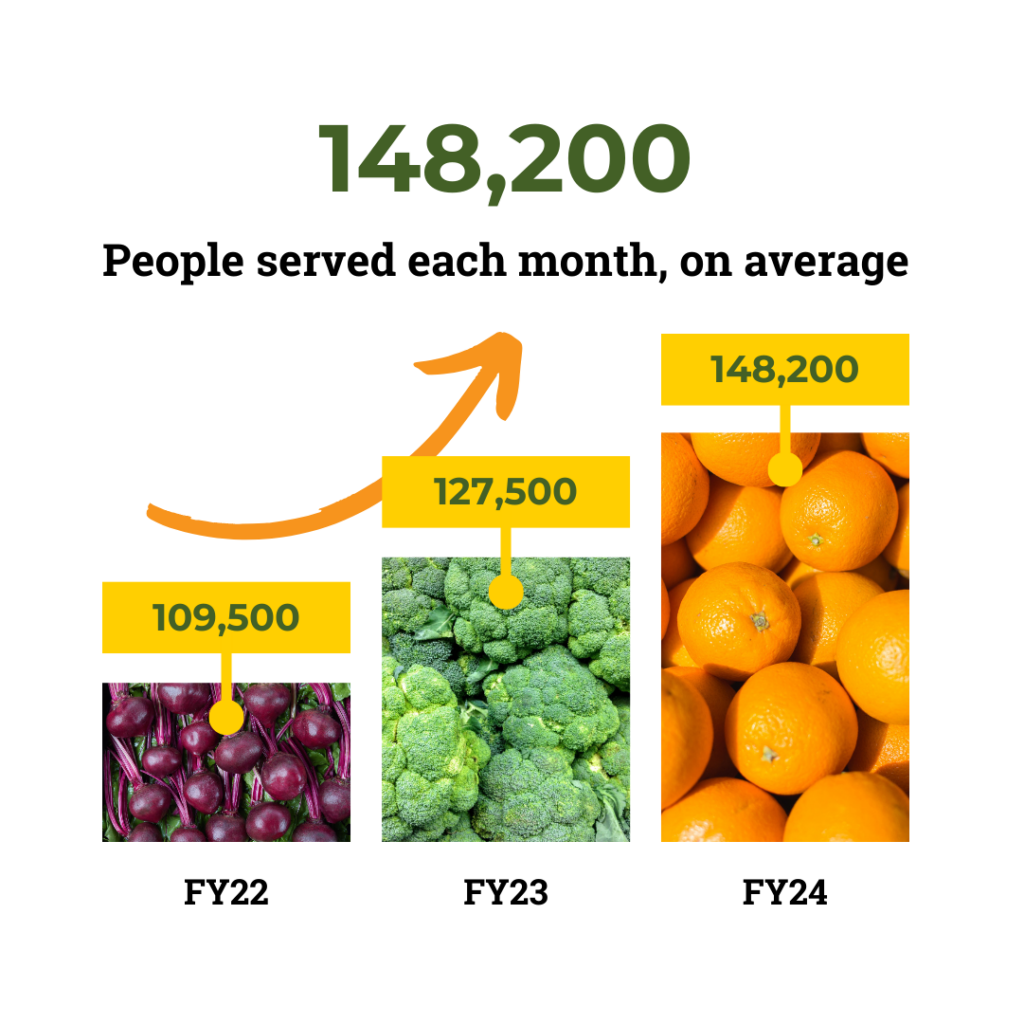
Food banking is always evolving
As CEO of the Blue Ridge Area Food Bank, I can attest that our organization has evolved dramatically over the past few decades, especially the past 10 years. What began as a humble effort to provide emergency food assistance 43 years ago, has grown into a much larger organization, and aims, among many things, to improve the health of our guests.
Today our work is fueled by the unprecedented need for food assistance, from our guests. To put that into context: last fiscal year, we served 148,200 people on average, every month. It’s the highest need for assistance we have ever seen. On top of that, we see a growing number of our neighbors turn to us as their primary source of food. It means this: this Food Bank must prioritize the health of our guests to make sure we remain part of the solution for community health, and not part of the problem.
Health as a strategic goal
Over the last decade, we have slowly, but surely, altered our course as an organization to focus more and more on the health of our guests, especially when we consider that only 20% of our health outcomes are a result of the health care we receive. Knowing that, improving the health of our guests is one of our strategic goals. And we are not alone; a growing number of Food Banks across this country are working on this as well.
The data shows how crucial the link is between eating a healthy diet and achieving positive health outcomes for the people we serve:
- Adults facing food insecurity are 2-3 times more likely to suffer from diabetes
- The prevalence of cardiovascular disease is estimated to be 6 times higher in households with very low food security
- Food insecurity is associated with a 257% higher risk of anxiety and 253% higher risk of depression
‘Incredibly powerful’
Dr. Merritt shared local data illustrating – beyond a doubt – the link between food access and health outcomes. For example, during the past year, Augusta Health patients who were food insecure spent, on average, almost a full day longer in the hospital than patients who were not food insecure. The chance of being readmitted within 30 days of discharge was almost 4% higher for patients struggling with food insecurity as opposed to patients who weren’t.
He also shared data about the relationship between food insecurity and diabetes, which he called “incredibly powerful.” A study in Waynesboro showed that food security status had a direct effect on how well the illness was controlled. Of people with diabetes, patients who had ample access to healthy and nutritious food were more likely to have controlled (vs. uncontrolled) diabetes than those patients who were food insecure.
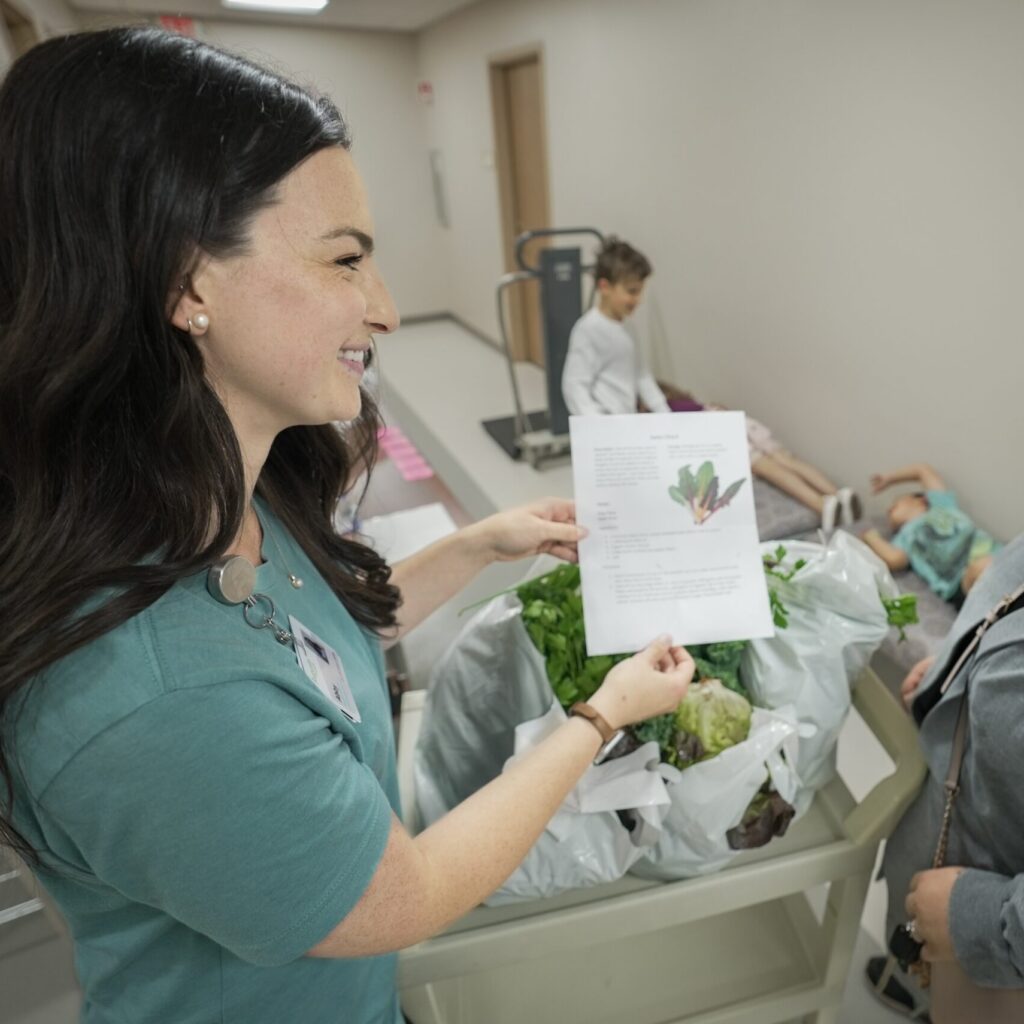
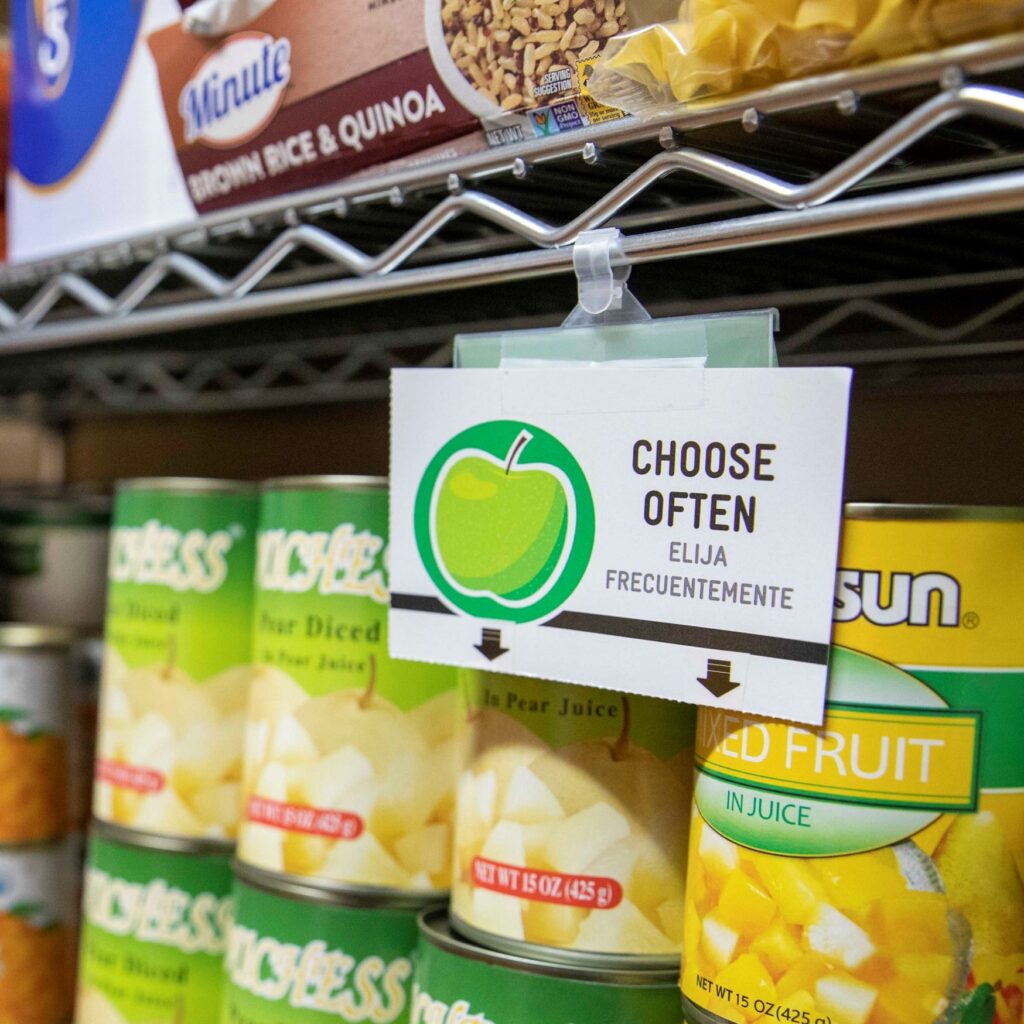
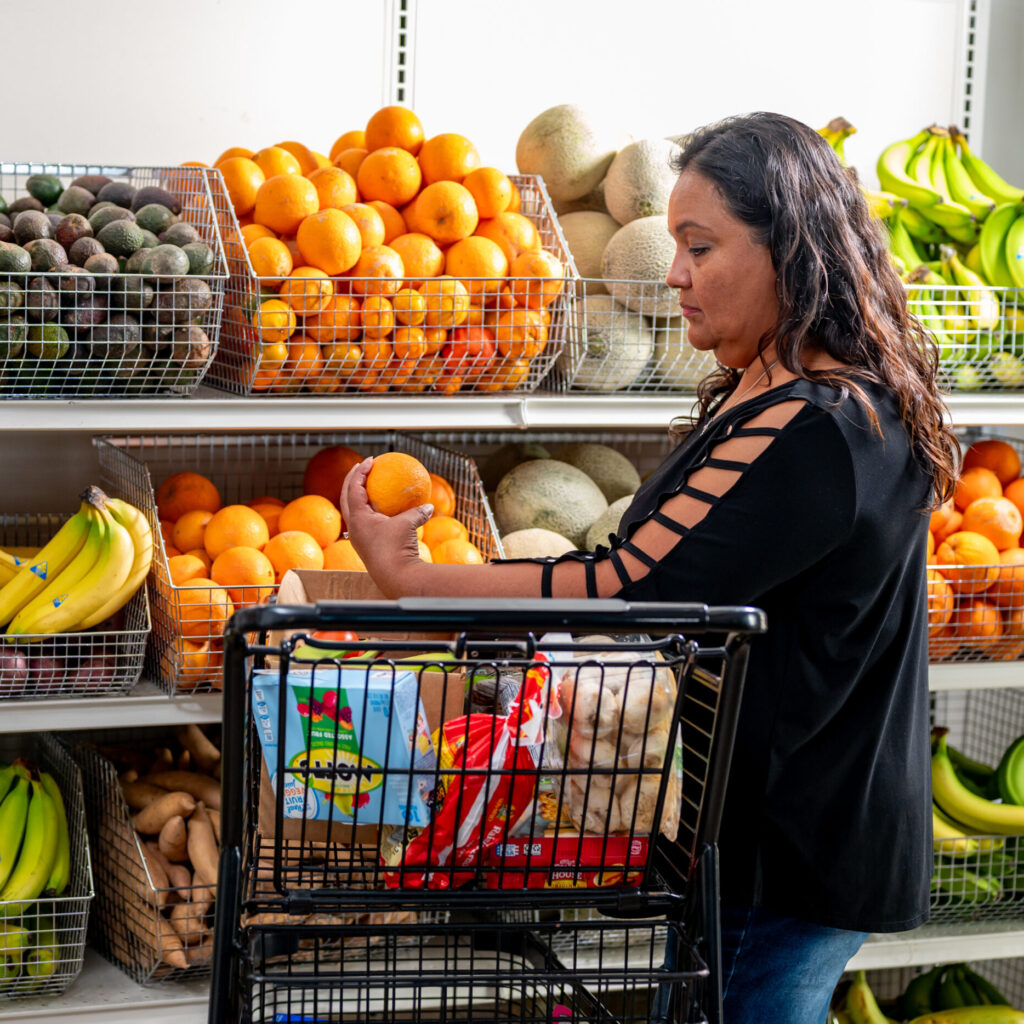
Full circle
It brings me back to this; food is medicine. Access to healthy, nutritious food is not merely a basic human need, but a fundamental determinant of health. And this Food Bank is ahead of the curve in carving out a path where everyone benefits, and health is improved. Several of our initiatives include:
- With our Food Pharmacy program, we currently partner with five healthcare providers across the region, providing in-clinic food pantry services for patients at 20 distribution sites.
- We developed Nourish, a food-scoring software that allows us to rate the quality of the food we receive and distribute. Around 98% of the food we acquired and could measure last year was labeled green and yellow, which is fantastic. Those colors correlate with healthy food options.
- And as one of many things we are doing to improve the health of our guests, we are part of a statewide initiative called the Healthy Pantry Initiative, where we give our pantry partners the tools and resources they need to provide the healthiest options for their guests.
Profound, indeed
More changes are on the horizon, and these could have profound implication for this organization, indeed. There is rapidly growing interest in the Food is Medicine concept within federal and state governments and among healthcare providers and insurance companies. Right now, this Food Bank spends about $5 million annually to buy food to meet the needs of our neighbors. That simply isn’t sustainable.
If, however, we could be reimbursed by Medicaid for food we provide to people who are food insecure and medically vulnerable, we will be better able to sustain our mission. And health care systems will see better health outcomes and lower costs as well.
Whatever the future may hold, this I can say without hesitation: our work will always be grassroots in the way we approach it, the way we develop it, and, most importantly, the way we deliver it.
I don't travel out of the county to get groceries unless I've got a doctor's appointment, so this provides me with some of the fresh vegetables and things like that that I don't normally get. The dollar stores don't have anything other than bologna and that kind of stuff, or processed foods.
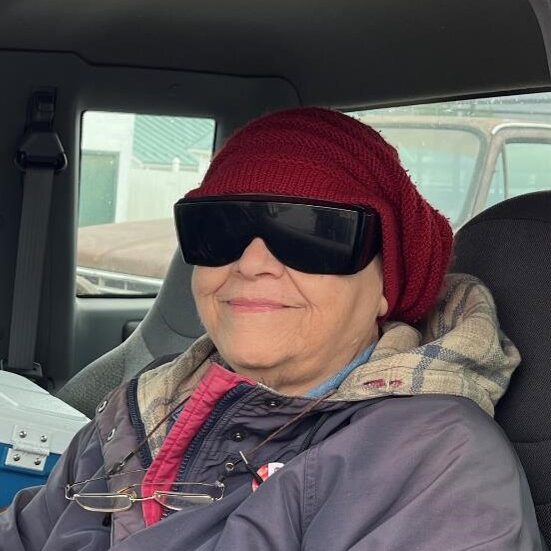
How can you help?
We simply cannot do this important work without the support from so many from within the communities we serve. Here’s how you can help:
- Donate to the Food Bank or a pantry near you. For more information about becoming a donor, visit our donor page.
- Volunteer at the Food Bank or a pantry near you. If you feel, please visit our volunteer page.
- Raise your voice. Subscribe to our Advocacy Alert e-newsletter and help us to encourage our elected officials to improve the lives of their constituents.
Follow us on social media. Engage with the Food Bank on social media, let us know how we are doing, share our stories and elevate the voices of your neighbors.
Learn More
If you would like to see a recording of the virtual CEO Forum, you can find that here. Want to read more? See our Food Is Medicine blog.
 Chew On This
Chew On This
